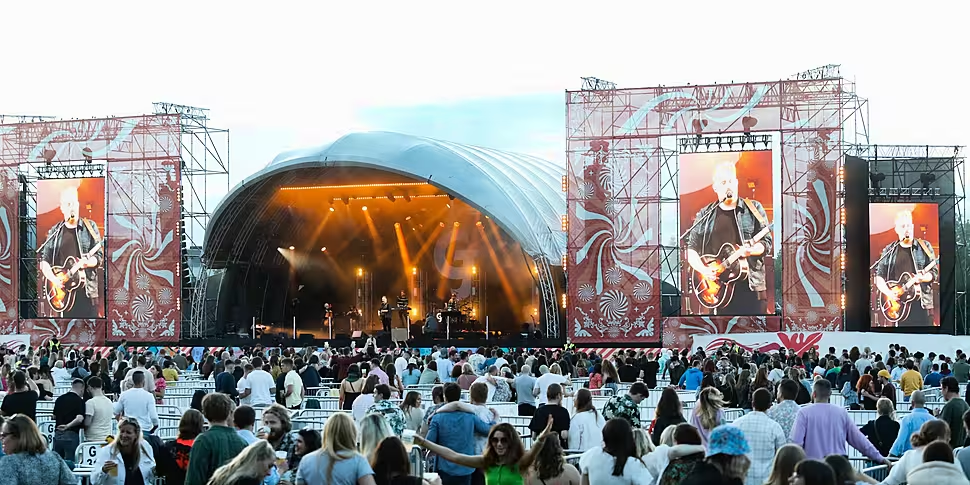Live music needs to return at close to full capacity to be viable, according to the Music and Entertainment Association of Ireland.
The Cabinet sub-committee on COVID meets this afternoon for a final discussion on a roadmap for reopening the country.
The plan will go before a full Cabinet meeting before it is published tomorrow.
The Taoiseach has said September will be a “significant month” however, most changes are not expected until later in the month.
Before this afternoon’s sub-committee meeting the Taoiseach, Tánaiste and Arts Minister will again meet with representatives of the live events sector.
On Breakfast Briefing with Trish Laverty today, Matt McGranahan from the Music and Entertainment Association of Ireland said live events need to return at close to full capacity.
“Really and truly, we need 100% capacity,” he said.
“To begin with, I think productions and so on will be just so happy to get back that they might downsize a little bit but we don’t want that to happen because ultimately you are not getting the employment figures right again or bringing it back to normal.
“You really need to have 80%-plus capacity. In Northern Ireland at the moment, a lot of theatres we have been speaking to have one-metre social distancing and that was bringing them down to about 30% capacity so that shows you that social distancing needs to be almost a thing of the past in order for theatres to be viable.
“Unfortunately, you do need to be looking at anywhere above 70% or even above 80% for the majority of productions and shows to get to a point where they are breaking even and getting into the sort of profit areas.
“That is really what we need back and if Government want to have reduced capacities, then Government are going to need to subsidise that so that shows can happen.”
He said the length of time it takes to get productions and concerts off the ground will lead to a “natural phased reopening” of the industry.
“It is inherent, it is built into it so I think we should take advantage of that,” he said.
“Some work can come back hopefully within a week or within a few days - local gigs in pubs - but productions in theatres may take three to six months to promote and produce.”
Mr McGranahan said the plan needs to include firm commitments on dates and an extension of the supports for workers.
“This isn’t an industry that you can switch on overnight,” he said. “It is going to take a period of anywhere between three to six months to see gigs coming back and workers getting out properly.
“So, we need the supports to continue – that is going to be a crucial aspect of it.”
He warned that if the supports are not extended “the next six months could be more detrimental to the music industry than the previous 18 have been.”









